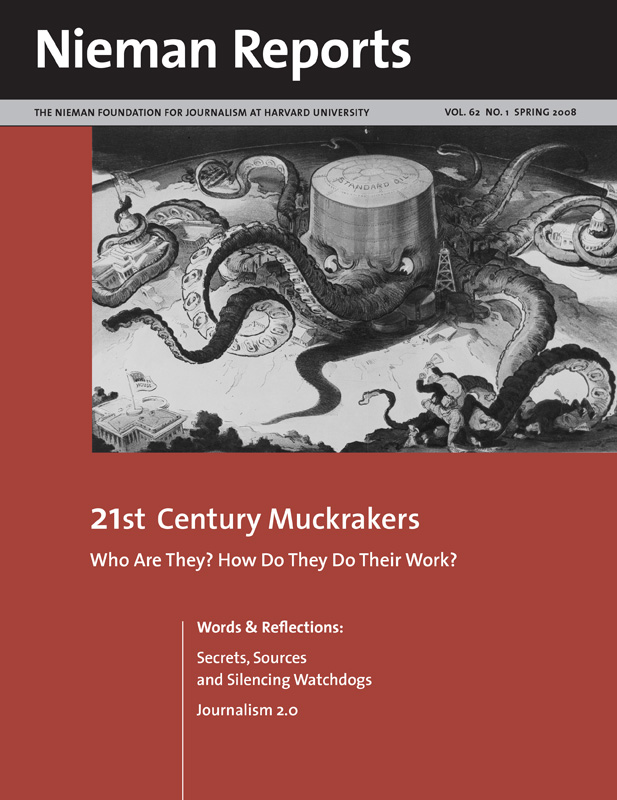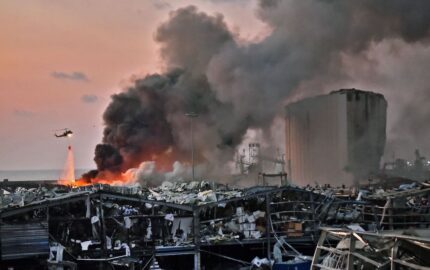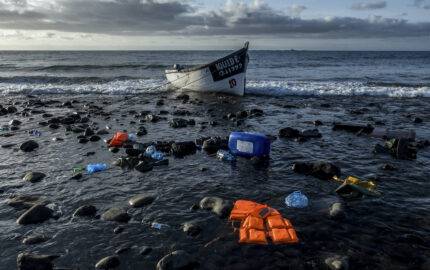In 2007, David Kaplan, who for many years was the chief investigative correspondent at U.S. News & World Report, studied the condition of global investigative journalism. Part of his mission was to determine the need for training and other assistance that can bolster such reporting. To do this, Kaplan surveyed the work of 37 investigative centers in 26 countries and conducted extensive interviews with international investigative journalists.
EDITOR'S NOTE
Read the study (pdf) »His report, “Global Investigative Journalism: Strategies for Support,” was commissioned by the Center for International Media Assistance (CIMA), a project of the National Endowment for Democracy. The center works on improving media assistance programs and highlighting the role independent media play in the democracies around the world.
In his executive summary, Kaplan highlights these findings:
Greater support of investigative journalism programs. Despite its frontline role in fostering public accountability, battling crime and corruption, and raising standards in the news media, investigative reporting receives relatively little in international development aid—and comprises a significant gap in media development funding. A substantial increase in funding of this vital area could have a major impact overseas.
Think long-term. Improving investigative journalism overseas requires sustained support over years, not weekend workshops. On-the-ground trainers working closely with committed local media can produce dramatic results.
Support investigative reporting centers. Central to any strategy should be support to the world’s nonprofit investigative reporting and training centers. The centers have proved themselves dynamic agents of change and form an increasingly vital link in world journalism. Endowments, long-term funding, and training in business and fundraising skills can make a major contribution by ensuring stability and a longer-term focus.
Consider different models for different countries. Investigative reporting centers vary in size and function and include reporting groups, training institutes, professional associations, and funding vehicles. Different models will be appropriate in different places. In regions where centers may not work, international programs should partner with motivated and established local media.
Encourage global networking. Better networking among the various investigative centers can substantially increase their access to reporting, databases, training materials, and other resources and further cross-border collaboration among them. The Global Investigative Journalism Network has the potential to become an international secretariat, with a central Web site, listserv, and resource center. Information about this global network, including names of organizations and journalists who are members and conferences it convenes, can be found on its Web site. The Center for Public Integrity oversees another global initiative, the International Consortium of Investigative Journalists, through which collaborative reporting projects are done by teams of international journalists.
Support investigative training conferences. Investigative reporting conferences play a key role in training and networking journalists, particularly from developing countries, helping to cost-effectively broaden the scope of their reporting. Especially useful are fellowships for journalists in less developed countries to attend the annual Global Investigative Journalism Conference and regional conferences.
Evaluate based on quality. Training and reporting projects aimed at creating a culture of investigative reporting should be evaluated based on their quality and impact, not on broad numbers of people trained and stories produced.
Insist on high standards. Because of their influence and high visibility, investigative reporting programs should represent the highest professional standards—in reporting, editing and ethical conduct. Outside audits by veteran investigative editors could help ensure that the high standards are adhered to. Sponsoring or subsidizing awards competitions can also draw attention to and encourage top-flight investigative work in a given region. — B.H.
EDITOR'S NOTE
Read the study (pdf) »His report, “Global Investigative Journalism: Strategies for Support,” was commissioned by the Center for International Media Assistance (CIMA), a project of the National Endowment for Democracy. The center works on improving media assistance programs and highlighting the role independent media play in the democracies around the world.
In his executive summary, Kaplan highlights these findings:
Greater support of investigative journalism programs. Despite its frontline role in fostering public accountability, battling crime and corruption, and raising standards in the news media, investigative reporting receives relatively little in international development aid—and comprises a significant gap in media development funding. A substantial increase in funding of this vital area could have a major impact overseas.
Think long-term. Improving investigative journalism overseas requires sustained support over years, not weekend workshops. On-the-ground trainers working closely with committed local media can produce dramatic results.
Support investigative reporting centers. Central to any strategy should be support to the world’s nonprofit investigative reporting and training centers. The centers have proved themselves dynamic agents of change and form an increasingly vital link in world journalism. Endowments, long-term funding, and training in business and fundraising skills can make a major contribution by ensuring stability and a longer-term focus.
Consider different models for different countries. Investigative reporting centers vary in size and function and include reporting groups, training institutes, professional associations, and funding vehicles. Different models will be appropriate in different places. In regions where centers may not work, international programs should partner with motivated and established local media.
Encourage global networking. Better networking among the various investigative centers can substantially increase their access to reporting, databases, training materials, and other resources and further cross-border collaboration among them. The Global Investigative Journalism Network has the potential to become an international secretariat, with a central Web site, listserv, and resource center. Information about this global network, including names of organizations and journalists who are members and conferences it convenes, can be found on its Web site. The Center for Public Integrity oversees another global initiative, the International Consortium of Investigative Journalists, through which collaborative reporting projects are done by teams of international journalists.
Support investigative training conferences. Investigative reporting conferences play a key role in training and networking journalists, particularly from developing countries, helping to cost-effectively broaden the scope of their reporting. Especially useful are fellowships for journalists in less developed countries to attend the annual Global Investigative Journalism Conference and regional conferences.
Evaluate based on quality. Training and reporting projects aimed at creating a culture of investigative reporting should be evaluated based on their quality and impact, not on broad numbers of people trained and stories produced.
Insist on high standards. Because of their influence and high visibility, investigative reporting programs should represent the highest professional standards—in reporting, editing and ethical conduct. Outside audits by veteran investigative editors could help ensure that the high standards are adhered to. Sponsoring or subsidizing awards competitions can also draw attention to and encourage top-flight investigative work in a given region. — B.H.



